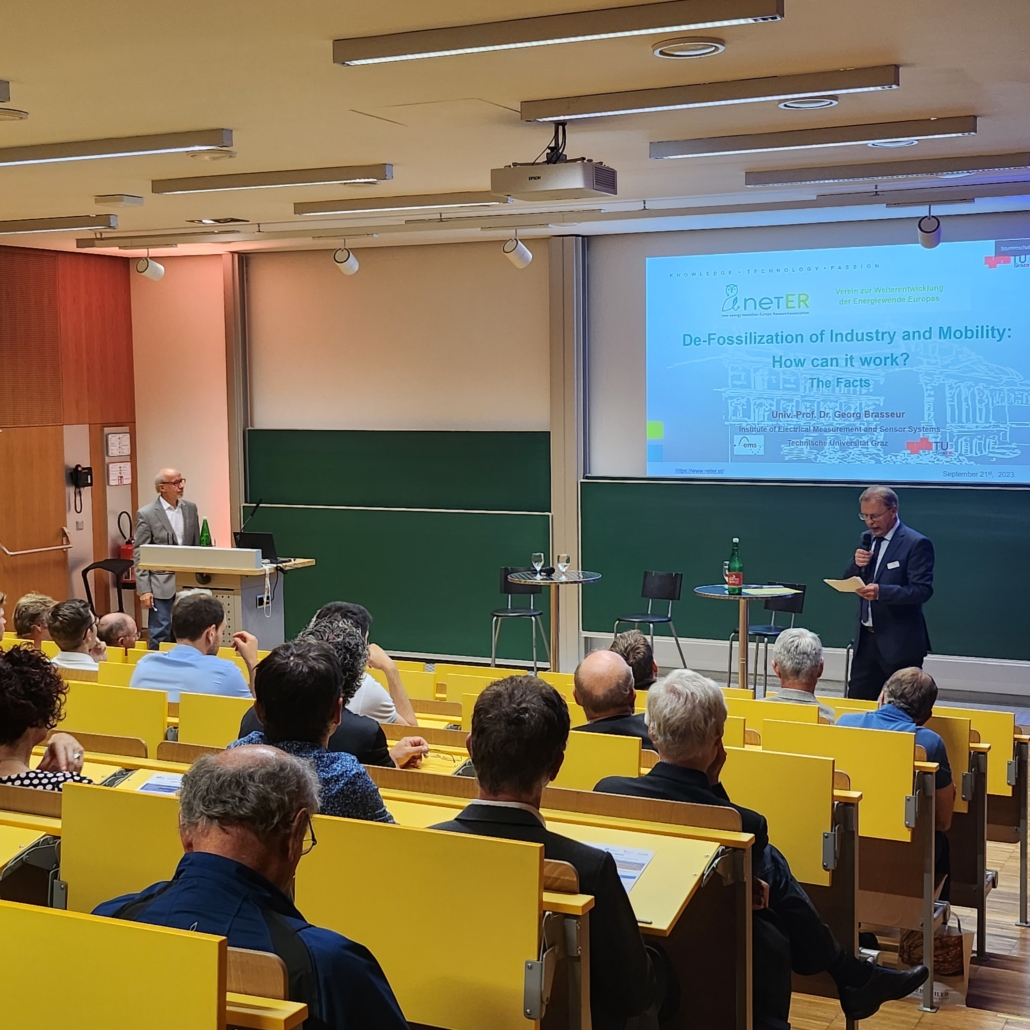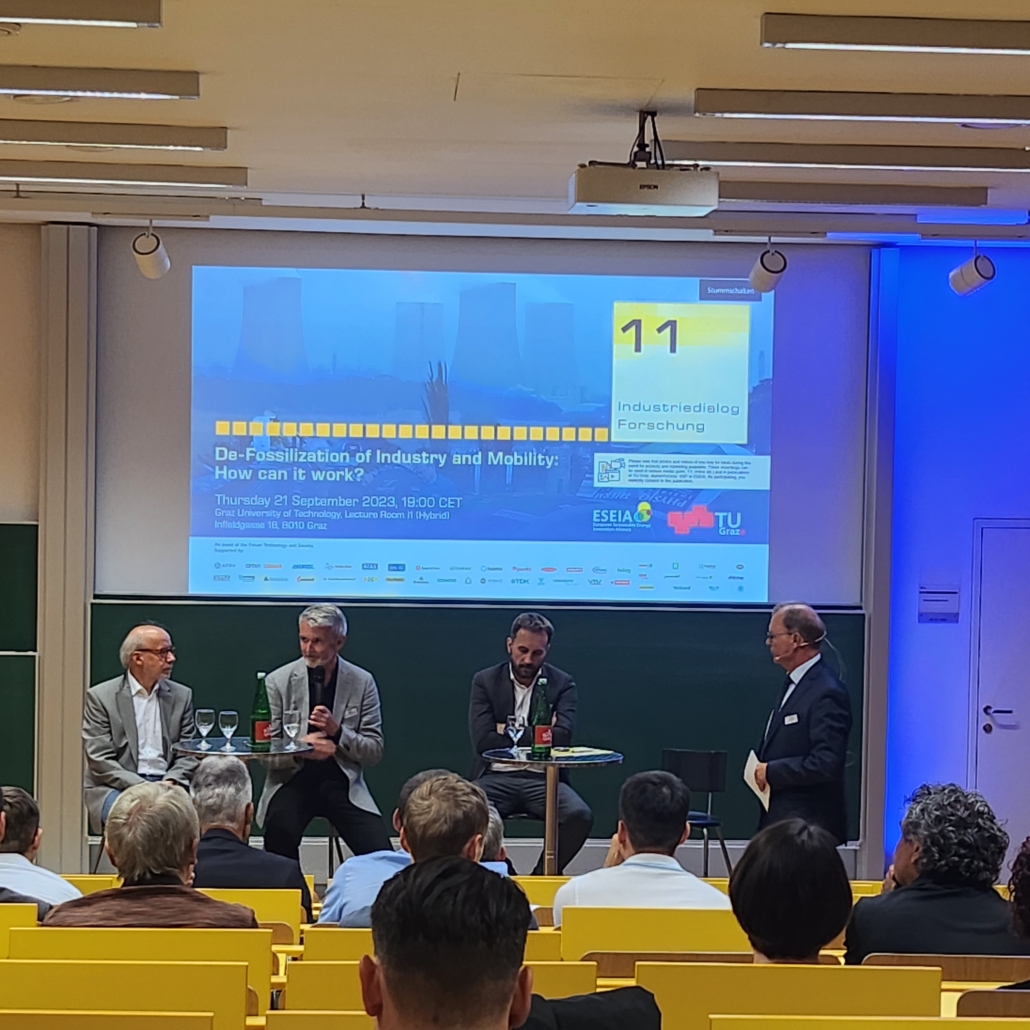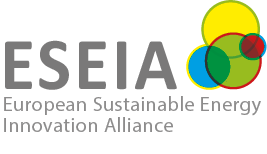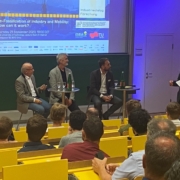ESEIA Lecture Series: Seventh Lecture Puts Spotlight on Industry and Mobility De-Fossilisation
On 21 September 2023, the seventh lecture in the ESEIA Lecture Series offered the opportunity for 75 participants from four countries to grasp the urgency of achieving net-zero emissions and explore de-fossilisation pathways for industry and mobility in Europe.
Titled De‐Fossilization of Industry and Mobility: How can it work?, the seventh lecture took place at Inffeldgasse 18, HS i1, Graz University of Technology (TU Graz) from 19:00 to 21:00 CEST. This event, organised by ESEIA in cooperation with TU Graz Forum Technology and Society, the Austrian Federation of Industries Styria, and the Austrian Universities of Technology (TU Austria), and supported by the Styrian Government, is part of the hybrid series Sustainable Energy Innovation Systems for Climate Neutrality.
The session started with opening remarks from the Professor at the Institute of Thermodynamics and Sustainable Propulsion Systems at TU Graz Helmut Eichlseder and the ESEIA Director Brigitte Hasewend, who welcomed the participants and emphasized the need for dialogue and climate action. In a short video message, the Austrian Regional Minister Barbara Eibinger-Miedl underlined the Styrian Government’s commitment to de-fossilising society and the significance of research and development in managing this transformation.
Then, Gerhard Murer, Anton Paar GmbH, who chaired the event, pointed out some of the key questions surrounding de-fossilisation – How can industry create green products and remain competitive on the global market? Which strategies do we find to de-fossilise the transport sector? Will Europe remain technology-open for technologies like eFuels? – and invited the speakers to share their perspectives. The line-up included experts from different fields, namely:
- Georg Brasseur, former President of the Division of Mathematics and the Natural Sciences of the Austrian Academy of Sciences;
- Walter Berger, Managing Director, voestalpine Research Services Donawitz;
- Juergen Rechberger, Vice President, Hydrogen and Fuel Cell, AVL.
Professor Georg Brasseur started his lecture by explaining why the world needs green energy and used numbers and graphics to underscore the urgency of energy transition. He then presented the three measures necessary to achieve this transition – save energy, expand green power and generate green storable energy carriers – and shed light on Europe’s energy needs.

One of the key points mentioned by Professor Georg Brasseur was that Europe is not and will not be energy autonomous in the future. Therefore, due to the lack of intercontinental high-voltage transmission lines to import electricity or intercontinental hydrogen pipelines to import hydrogen, Europe must import the energy it needs as eFuels.
To conclude, he stressed the need for global peace and cooperation in facilitating de-fossilisation because climate change is a challenge that transcends borders and requires the involvement of policymakers, industry and the public.
Following Professor Georg Brasseur’s lecture, Walter Berger offered a glimpse into steel, one of the most used materials in the world, with an astounding 300 million tons consumed annually in Europe alone, and the voestalpine sustainability strategy. He also noted that climate-neutral steel production requires several key elements, such as the safe availability of high-performance products and the optimisation of entire value chains, stressing the need for collaborative efforts with customers to support the overall industrial targets.
Then, Juergen Rechberger took the opportunity to present a study investigating the Austrian energy system’s prospects for 2050, should full decarbonisation across all sectors be successfully realised. He also addressed the future of mobility, pointing out the prioritisation of battery electric solutions, given the pressing need for rapid scalability, and presented AVL solutions for a renewable energy and mobility system, such as the development of fuel cell and electrolyser technologies. He concluded that to achieve the targets, in addition to being receptive to technological advancements, top priority needs to be given to fast local build-up of renewable energy and energy efficient solutions.

The session concluded with an engaging discussion among the attendees and served as a reminder that “the planet is not at its end, but whether the future will be desirable for mankind, we decide today.”
Thank you to the speakers, the participants, the chair Gerhard Murer, the host Helmut Eichlseder, and all those who have contributed to making this event a success. We look forward to seeing you again soon!
Upcoming lecture: Smart Integration of Sustainable Mobility Solutions for Urban Areas
The eighth lecture in this series will be delivered on 16 November 2023 by the Director EIT Urban Mobility Innovation Hub Central Judith O’Meara. During the lecture, titled Smart Integration of Sustainable Mobility Solutions for Urban Areas, our guest lecturer will explain why we need smart mobility solutions to make cities more sustainable and how these solutions can revolutionize transportation, reduce emissions, and improve overall accessibility and convenience.
Two respondents will join the discussion – the Head of Mobility & Leisure at Holding Graz Mark Perz the Researcher at the Institute of Automotive Engineering at TU Graz Martin Hofstetter – who will present the measures already in place and share their perspectives on further opportunities and challenges for reshaping urban mobility in the Austrian City of Graz and the Styrian region.
After the presentations, the event chaired by the Researcher at the Institute of Automotive Engineering at TU Graz Martin Hofstetter, and hosted by the Professor at the Institute of Highway Engineering and Transport Planning at TU Graz Martin Fellendorf, will conclude with a panel discussion and an open exchange among the participants.
The lecture is free and open to all interested stakeholders. Register here to attend!
More information about ESEIA Lecture Series on Sustainable Energy Innovation Systems for Climate Neutrality is available here.
Contact:
ESEIA Team: office@eseia.eu


